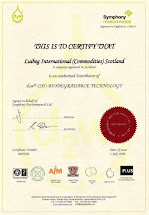Don’t waste their efforts
Bharati Chaturvedi
April 14, 2010
The recent fires in Delhi’s Mundka plastic scrapyard and the radioactive leak at the Mayapuri scrap market are a wake-up call for Indian cities to find innovative ways of safe scrap trading.
The scrap trade in Delhi is one of the biggest and most robust in India. Before the ascent of China, in the mid-1990s, it was believed to be one of the biggest trading spots in Asia. Approximately 2,000 tonnes of Delhi’s scrap is recycled here. In addition, waste from Pune also comes here. All of this rests on the work of a giant army of over 80,000 wastepickers, over 25,000 small scrap dealers, a few thousand itinerant buyers and over 50,000 sorters and bailers, apart from e-waste dismantlers.
A World Bank estimate says that over 1 per cent of the population of a big city in the developed world comprises waste recyclers. In India, this sector, predominantly informal, works like a pyramid, with wastepickers at the bottom and the reprocessors at the top, employing over 15 lakh Indians. This is India’s recycling mechanism — driven by the enterprise of the poor who are largely unrecognised and face enormous health risks. It saves huge amounts of money for the various municipalities.
Despite the Delhi incidents, they are a city’s allies, not a nuisance and our policy makers know that. The National Environment Policy, 2006, and the National Action Plan on Climate Change, 2009, both specifically mention the importance of the informal recycling sector and urge government agencies to work with them. The Comptroller and Auditor General’s (CAG) report of 2008 indicted some municipalities for making their work harder instead of collaborating with them.
A UN-Habitat report released at the World Urban Forum a few weeks ago points out that informal recycling is a global phenomenon. Policies and research aside, we must work with the recycling sector because of the sheer importance of its work in keeping our cities clean and waste recycled economically. Contrast this with New York, where recycling stopped briefly because of the expense involved. Besides, there are hundreds of urban poor whose livelihoods depend on the recycling industry.
How to make the sector safe? For a start, every municipality must undertake a census, starting with the scrap shops. These shops must be licensed and trained to set up simple fire safety systems. The informal sector finds it hard to invest in fire safety systems if it’s stuck with forced “illegality.” Such shops must be helped to set up a paper trail for all metals, cables, intact items and bulk purchases made. This will help the authorities to track the source of origin of noxious items. They should also have access to authorised help to implement these and other performance standards, and to solve other problems.
But most of all, they need adequate space. Electronic waste is dismantled in the living rooms of the poor because there is no other space. In Delhi, the plots for plastics at Tigri Kalan are tiny. Expecting a scrap shop to move into these is like asking a man wearing size 9 shoes to squeeze into size 5. Besides, small scrap dealers need localised space — nearly six are required for a 100,000 population. In Delhi, the Masterplan 2010 allocates space for recycling but bans junk shops that trade in anything but glass and paper. This is absurd. How can a city indirectly ban recycling — a process the Municipal Waste Rules of 2000 mandate?
The Delhi government has to push for re-drawing a realistic masterplan that enables, not impedes recycling. Only when there is basic livelihood security, and an attempt to draw in these players participatively into their own safety, can we expect to sustainably upgrade their work and green our cities.
Bharati Chaturvedi is Director, Chintan Environmental Research and Action Group, New Delhi
The views expressed by the author are personal
Thursday, 15 April 2010
Subscribe to:
Post Comments (Atom)



No comments:
Post a Comment